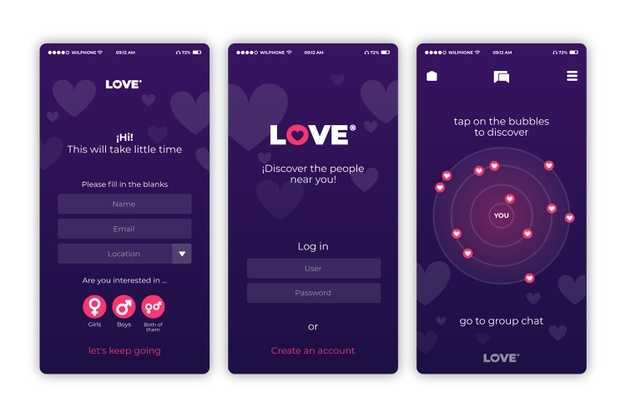A romance scam is a form of cheating in relationships that involves stealing, deceiving, or defrauding a partner. This type of scam is in which the perpetrator seeks to gain your trust by pretending to be someone they are not. They will attempt to woo you with all sorts of promises, gifts, and affection so that when it comes time for them ask for money or information from you, you may feel like there’s no harm done because their intentions were good.

In relationships, the fraudster creates fake profiles, identities, and fake personas with good believable fake stories ( often similar stories ) to gain their target’s attention or emotionally trick them into developing feelings for them. The potential victims are then manipulated into sending money to the fraudsters under the pretense of financial hardship, necessity, or emotional blackmail.
Private investigators are useful in such a case as they help to unravel who is behind the scam and file chargeback claims. They can also gather evidence against romance fraudsters, which can then be used by law enforcement agencies around the world.
On this page, we’ll go over the red flags that reveal your spouse on a dating site trying to defraud you.
How do I spot a Romance Scammer?
The American public often ends up with something other than a broken heart and a depleted wallet. Many American and Canadian consumers are reported to have lost more than $4 billion to online romance scammers in the last five years. Generally, older users are most likely targets of these fraudulent practices and most don’t realize they are affected until later. This article helps you recognize common online dating scams and offers some tips on how to tell if someone is scamming you online. We’ll help you find a scammer if someone you love is having a bad time.

Romance scam statistics according to FBI reports:
According to a U.S. Federal Bureau of Investigation (FBI) report on romance scams, victims lost around $220 million to romance scams in 2017 — an average of $30,000 per victim. The romance scam victims were often over 50 years old and 70% were women. The victims are often over 40 years old or in a vulnerable situation due to loneliness or being newly single with children at home.
21 January 2021
More than 20 million have been lost in romance thefts in 2019. The recent scam was the type of scam where people have lost more money than any other type of fraud reports to the federal trade commission. It is important to remain cautious and remember that not everyone wants love.
Victims also declare that they have been convinced by romance scammers not to report what has happened regarding the scam because of the embarrassment and shame it may cause them.
What you should know about romance scams
Romance fraudsters typically establish phony relationships with the intention of obtaining money and committing other sorts of illegal activities. The start of a romance scam is often an online request for assistance, which is why this sort of fraud is also known as the “sweetheart scam.”
The romance scammer story aims to take advantage of the person’s feelings for their own benefit. It is a form of confidence trick and the scammers create fake profiles and develop fictional stories designed to gain their victim’s trust, expressing strong romantic interest while often pretending to be an American soldier or serving in a branch of the military.
The romance scammer asks their victim to send money by wire services, checks, or credit cards. Often as research has shown, fraudsters do not use their personal information to receive money from their victims, most are often resort to the use of “middle-man” proxies, false names, and fake paperwork which makes their case more difficult to investigate.
Nothing But Money Mules
The scammer pretends that they need the cash for urgent matters such as hospital bills, rent, travel expenses pay or visas. With romance scams coming from all over the world, common methods of accepting payment include iTunes gift cards, Moneygram, Western Union, and wire transfers.
In recent years, there has been an increase in reports of romance scams involving investment fraud. Once the fraudsters sense that they have gained the person’s confidence, they claim to possess insider information and encourage victims to buy the shares of certain overseas-listed companies, promising quick profits. Victims are often encouraged to invest large sums of money, which they lose when the romance scam artists disappear after obtaining their financial information.
It’s a type of business for romance scammers, therefore they like building relationships with the victims to gain personal information such as photographs, phone numbers, home addresses, personal email addresses, friendship requests on social media sites, and instant messaging applications.
Scammers create fake profiles on social media sites
Scammers make fabricated profiles online by taking pictures of other people. They proclaim their love quickly revealing their story of the need for money. Victims think that they are just helping their soulmate but don’t realize that they are conspiring and helping others in crimes. If you look up the photo of your girlfriend on the website of your favorite search engine then you can easily find a scammer.

Usually, when a user’s social media profile vanishes a few days after meeting you, this is an indicator. Do not spend money on someone you met online. If your best friend in the virtual world asks you to pay for something then you could be getting money for scamming.
The scammer wants to move to personal email quickly.
Typically scammers will want to move a potential client to a private email and make sure it is not associated with the site they meet up with. The typical scammers tend to try to pull off hundreds to thousands of dating scams at one time.
They might even delete their existing fake persona profile for good after the complaints. They must relocate the victims on an offline email account where their conversations can be conducted private and without disturbing the authorities.’ The victims also have to be transferred to a private email address for the conversation.
Romance scammers plan to visit but they always cancel because of some “scam”
Watch people who say things such as “I really want to meet you but I can’t buy a plane ticket right now because x” When you buy me a ticket I will pay you. I just want to be together.” said another loving friend. Sometimes they will be canceled by request for short-term loans she says. I’m going on this trip and you have to give me some suspicions to come to see you.
The scammer falls in love too fast
Potential victims should be especially cautious if the scammer is giving them visualizations of love like “I can’t wait to marry you and hold your hand to show the whole world how much I love you.”
The scammer wants victims to imagine these romantic scenarios so they can explore their feelings and hook up sooner. According to her victim, her time on dating sites is likely longer than a couple days or messages she sent someone.’ He says he is charming but not so charming.
Romance scammers profess love quickly without actually meeting you.
A typical example of dating fraud comes if an Internet-based romantic scammer displays strong emotions in a relatively brief period. Maybe they even say they’re in love with you because of their use of that tactic.
Guard your personal information carefully and be alert for new love interests asking for personal data soon after contact. A great way to avoid online dating scams is by not providing you with an account name.
The victim has never met the online amore in person.
In most romance scams, you reasonably and effectively find yourself on the wrong partner. Usually, you never meet anyone at all and you do not actually look as charming as the man in the photos.
If they Skype over the internet, the scammer’s voice or accent may change in different ways. If vocal differences are challenged — usually a person with a change of voice presents a scenario such as cold or that his tone has changed simply because he is visiting a new.
Romance scammers claim to need money for emergencies, hospital bills, or travel.
Be suspicious of people who will take financial aid whatever the conditions are. If you encounter one of these stories in a conversation with a loved one online there’s a good chance they’ll scam you.
Many victims send money to those who have a relationship with them and trust in them. Scammers try to convince them to pay for travel tickets to visit or say they need some financial help. Some actors offer fake tourist trips and demanded more money to post bail.
Requests for payment of scammers’ fees can continue until the victim is incapable of providing the requested amount as promised. For example, an actor claims as a United States citizen and asks the victim to send goods or other electronic devices to a foreign address. The actor can also request more money for travel or to recover assets taken during his arrest.
A growing trend in the game
Actors groom their victims through time and convince them open banks under the guise of sending or receiving funds. After several months of development trust, the actor will tell the victim about an attractive business opportunity. The actor will tell the victims investors are willing to fund the project but they need a United States account to access the money.
The victim has to open and send money from that account to other accounts controlled by the actor. Grooming is defined as making a victim prepare to conduct unauthorized activities on their behalf through communication meant to develop a trustworthy relationship.
The online amore is from a foreign country
This scammer is mostly traveling from or originating in a foreign country. The distance ensures a difficult and efficient meeting between victim and fraudster.
Dating scams usually continue to be made by foreign individuals because their clients are so difficult to find a lawyer if the scam has been reported across international borders. For example, scammers sometimes say they have to pay a special and expensive Black Market visa fee to reach their destination country. The law may say that the user needs the visa to travel to a destination even though the victim has access to a smartphone even if they have Internet. The victims should expect a heavy accent if encountered.
The scammer is a beautiful model
So the scammers can often copy pictures of people who would also be professional models. Usually, though the real people see the camera they are not aware of the scam or anything else they do.
Some of the clients say the scammer just wants to get tired of the scene on the dating site, this is absolutely true in your real life but normally the scammers are too young to exhaust their standard dating pool in their early 20s, but if the pictures all look exactly as you’re reading in a fashion magazine they have probably.
One simple technique to prevent catfish on online dating sites and online dating apps is by simply carrying out a reverse image search and metadata extractors.

Measures to take if you think you might be the victim of a romance scam or other type of online fraud
- Find out if you’ve been scammed.
- If there has been a financial loss, notify the authorities and financial institution.
- Be vigilant of future scams and avoid opening emails from unknown senders.
- Don’t share personal information online or over the phone with strangers, and don’t give your money to anyone without verifying their identity first.
- Take a break from social media for a while — it’s common for scammers to use pictures of attractive people as bait on dating sites and social media platforms.
- Check-in with friends and family often, especially those who live far away so they can help keep an eye on you and be there for support when needed.
Romance scams are a growing problem in the digital age, but there are ways to protect yourself. This blog post has provided you with an overview of romance fraud and how it works so that you can better identify when something is amiss. Armed with this knowledge, we hope that your next online romantic encounter will be safe! If you think someone might have scammed or defrauded you financially, then please file a police report and contact chargebackpros for help recovering your funds if possible through our team of financial forensic experts.
We want to make sure everyone gets their money back after being taken advantage of by these criminals who prey on trusting people looking for love online. If this article has opened your eyes to the reality of romance scams, please share it with those who need this information most!












9 Comments
I was scammed by a Russian scammer, a single father of one on a dating site.
I met this guy, who claimed his name was Dmitri, through her online dating. We had been talking for a few weeks months. He slowly convinced me to invest in this thing called Bitcoin which seemed exciting when it first came out. He introduced me to a platform called “Bitcoin-global”.
A romance scam of 6 years, spent about $500,000 most of it in bitcoin. I need help.
I was scammed by a man that I thought cared about me and wanted to be with. He told me he needed money because he couldn’t come over here because he had cancer and needed treatment. He said this over and over again. This went on for two years. I lost every dime of my savings, retirement and checking account. At first it was small amount but then it got larger. I saved up to see him only to find out that he was using an app to create fake accounts and spending the day in several places at once, telling other Romance Scam Victims the same story about needing money for treatment. I didn’t believe it until it happened to me as well! Please people do not invest in this kind of scam because as soon as you send any amount of money they will disappear into thin air!
I was in love with this guy John and he told me every detail of his life, family status, his country etc. I sent him everything that I had – money, documents and other valuable things. After two months, everything stopped and he said that he died in a car crash accident. I have lost my money but keep on searching for him on various social network sites to find something that could help but nothing has happened yet.
I was so glad to find this site! I was defrauded by a scammer from Singapore. Over the course of several months, I lost over $50,000. Luckily, my experience has inspired me to do something about it.
I thought I was in love, and he was too good to be true. The scammer seemed like the real deal: good-looking and attentive, a little too attentive. He used my family member’s photo in his profile and added them as a “friend” on Facebook so they could talk to each other. Now that they are “friends,” they communicate through an online messaging service provided by the dating site. This makes it easier for the scam artist to keep up the pretense of being someone else. They use this fake relationship as leverage so that when you ask for money for whatever reason, you will feel guilty about ruining their “relationship.”
I was so excited when I met the love of my life online. We shared so much common interests! I didn’t realize until too late that I was falling for an Internet scam. It’s a hard lesson to learn, but I don’t want anyone else to fall into the same trap.
A while back, I fell in love with a man online and we dated for several months before he decided to disappear. During this time, he asked me to send him money several times to help him pay bills and to lend him cash so he could buy me an engagement ring. Around the same time that he disappeared, I received an email from someone who said they were from the local police department. They told me that my boyfriend had been arrested for scamming others just like me through online dating sites. Since then I have done everything I can to raise awareness about romance scams, in order to prevent others from falling victim to them as well!
I know that I wasn’t the first victim, and I won’t be the last. Chances are you’re also here because you’ve been scammed out of thousands of dollars by someone who lied to you, stole your heart and left you hanging in the worst way possible. Hopefully this website can help out a little bit, but really, nothing will fix what has happened to you.
I was taken for £4,000 by a man who claimed to be an American soldier called Scott. I only found out he was a fraud when I read about him online. He even used a photo from an American soldier’s funeral in 2004 – when he was 20 years old!